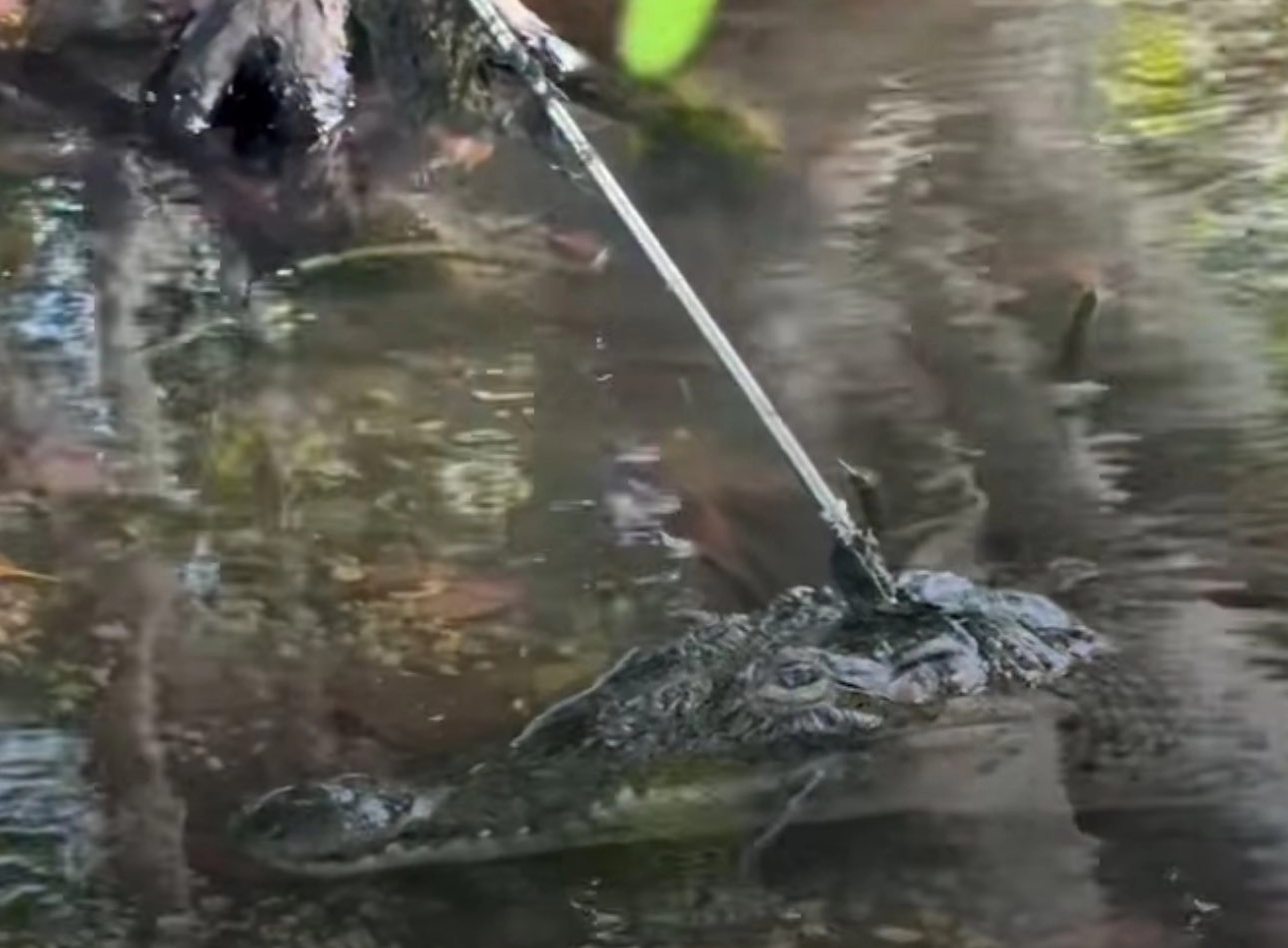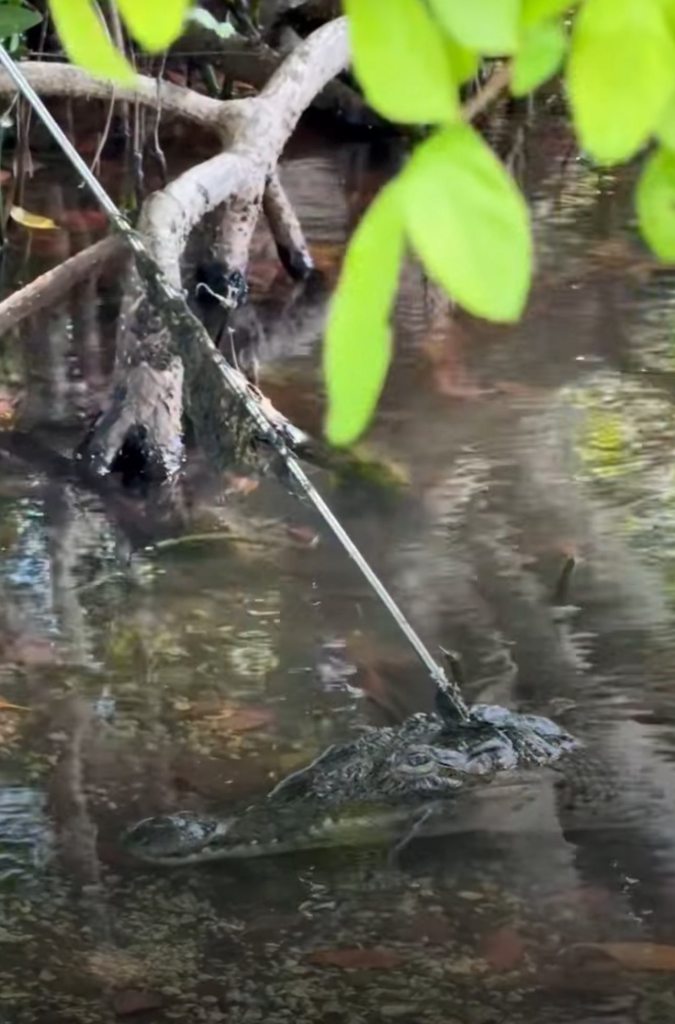
Photo by Kelly Randin

Audio By Carbonatix
Florida Fish and Wildlife Conservation Commission (FWC) officials are offering a reward for information about an American crocodile found with a spear gun bolt lodged in its head.

Photo by Kelly Randin
A bystander in Key Largo called FWC on Saturday, October 18, after spotting an 8-foot-long female American crocodile swimming with a sharp projectile protruding from her head near mile marker 101, according to FWC spokeswoman Arielle Callender.
FWC and Zoo Miami personnel finally captured the crocodile late Monday after spending several days searching for her, according to a report from Local 10.
“These guys are heroes,” Kelly Randin, the Key Largo resident who reported the injury, tells New Times.
Randin tells New Times she called FWC after a neighbor spotted the wounded croc, which is now in surgery. She posted photos of the abuse on social media, to the shock and horror of many.
“Poor thing. So cruel to leave her out there alive and suffering,” one commenter wrote. “WTF is wrong with people? They better catch this asshole. I’m furious,” chimed in another.
FWC continues to seek information about the incident. “Anyone with photos, videos, or information is asked to contact the Wildlife Alert Hotline at 888-404-3922. Reports can be made anonymously, and tips that lead to an arrest or citation may be eligible for a reward of up to $1,000,” according to the press release.
It’s illegal under Florida law to injure, kill, capture, or possess alligators or other crocodilians. Additionally, the American crocodile is listed as a federally threatened species by the U.S. Fish and Wildlife Service, so it’s also against federal law to injure or kill them.
Injuring an American crocodile in the U.S. is punishable by fines of up to $50,000 and imprisonment for up to a year. Florida’s law has more teeth; injuring an American crocodile is a third-degree felony punishable by a fine of up to $5,000 and up to five years in prison.
Experts say such head wounds are likely to cause a slow, agonizing death. ABC News Australia reported that animal advocates in Queensland faced a similar issue in March when they were unable to capture a speared crocodile for treatment.
“The crocodile would be in extreme pain and, if not captured and assess, will most likely die a slow and agonizing death,” an environmental expert told the outlet. “Behind the head — there’s a lot of important organs there, so there’ll be a lot of discomfort there.”